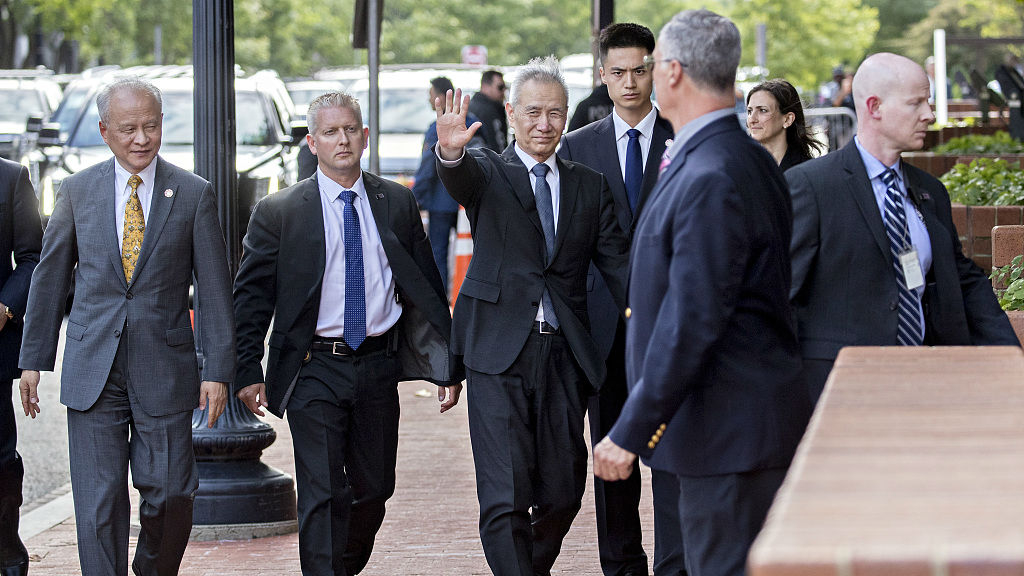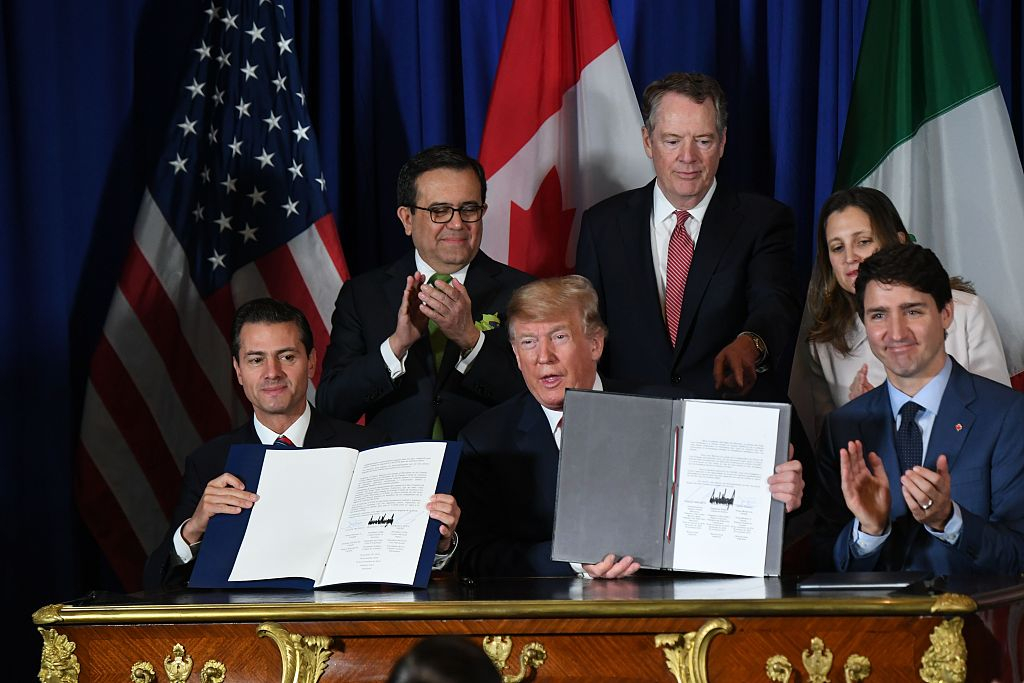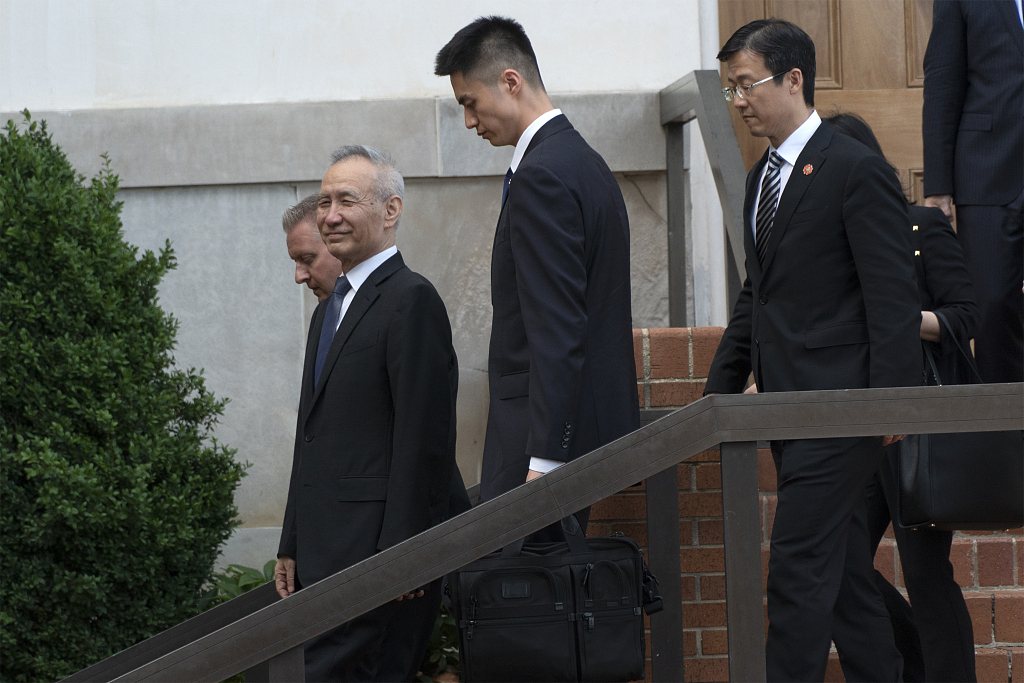
Opinion
07:29, 12-May-2019
China's dialogue-based approach to solving conflicts is the winner
Updated
09:49, 12-May-2019
Adam Garrie

Editor's Note: Adam Garrie is the director of the UK-based global policy and analysis think tank Eurasia Future and co-host of talk show "The History Boys." The article reflects the author's opinion, and not necessarily the views of CGTN.
Due to the high levels of trade between China and the United States, it is easy to forget that the U.S. is in the midst of self-engineered trade disputes with multiple countries. Whether in negotiating the new U.S.-Mexico-Canada Agreement or threatening further tariffs on popular European imports including luxury cars, Donald Trump uses the same kind of "fire and fury" approach to negotiating with North American and European partners as he does with China.
In respect of EU-U.S. trade, virtually no progress has been made since the instigation of that front in the trade war. Instead, increasingly harsh rhetoric continues to flow between normally close allies. During Trump's trade war, the Republic of Korea took a dispute over America's so-called "dumping" laws to the WTO while politicians in countries as diverse as India, Turkey, Germany and Israel have complained about Trump's approach to trade.

Mexico's President Enrique Pena Nieto (L), U.S. President Donald Trump (C) and Canadian Prime Minister Justin Trudeau, are pictured after signing a new free trade agreement in Buenos Aires, on November 30, 2018, on the sidelines of the G20 Leaders' Summit. /VCG Photo
Mexico's President Enrique Pena Nieto (L), U.S. President Donald Trump (C) and Canadian Prime Minister Justin Trudeau, are pictured after signing a new free trade agreement in Buenos Aires, on November 30, 2018, on the sidelines of the G20 Leaders' Summit. /VCG Photo
As China is the world's second-largest economy, it would, in theory, be possible for China to take an absolutist approach to the trade war and to consequently storm out of talks, cancel talks and issue unilateral economic threats to a U.S. economy that is mutually dependent on Chinese imports. Some countries that are economically weaker than China have in fact spoken in caustic rhetoric about such matters and China is surely in a position to exert such leverage against Washington if it wanted to.
Instead, China takes an approach that is the antithesis of brinkmanship, hostility and grandiosity. China remains committed to a dialogue-based approach to problem-solving in all matters of foreign relations.
Whether at the UN or at international conferences on cooperation, it is not difficult to hear Chinese officials talk about the need for the world to acclimate itself towards dialogue-based conflict resolution mechanisms in all areas. This is why China and its ASEAN partners have been engaging in dialogue with the aim of finalizing a win-win Code of Conduct (CoC) for the South China Sea.
It is likewise why China insists that in areas of global interest ranging from Iran and Syria to Afghanistan and Venezuela, only comprehensive dialogue and adherence to international law can offer meaningful, sustainable and peaceful solutions. It is also why China continues to positively support the Korean peace process while condemning all suggestions that the process should regress to the methods of the past.
China is also a practitioner of the philosophy that it discusses in public. This is why although the recently concluded round of trade talks between China and the U.S. were strained by the surprise of new tariffs issued by Donald Trump, Chinese Vice Premier Liu He has stated that talks will continue and that he remains "cautiously optimistic" about their final outcome.

Liu He, China's vice premier (L) departs the Office of the U.S. Trade Representative in Washington, D.C., U.S., on Thursday, May 9, 2019. /VCG Photo
Liu He, China's vice premier (L) departs the Office of the U.S. Trade Representative in Washington, D.C., U.S., on Thursday, May 9, 2019. /VCG Photo
Liu's realistic and calm statements after the conclusion of talks with his U.S. counterparts demonstrate the essence of a dialogue-based approach to conflict resolution even in difficult circumstances. Some countries in China's position would have simply walked away while the representative in question would have made an impassioned statement about why the other side is to blame for the breakdown in talks.
Through leading by example, China offers the world a visible alternative to a hostile approach which in the context of difficult trade talks could dramatically worsen the global economic situation and in the context of Korea or Iran style de-escalation talks, could lead to the outbreak of violent conflict.
There were no winners at the last round of China-U.S. trade talks apart from China's dialogue-based approach to negotiations. It is this method that increases the likelihood of an eventual win-win deal being signed and in the meantime, this approach can help to calm the nerves of global markets that are desperate for an end to the trade war.
(If you want to contribute and have specific expertise, please contact us at opinions@cgtn.com)

SITEMAP
Copyright © 2018 CGTN. Beijing ICP prepared NO.16065310-3
Copyright © 2018 CGTN. Beijing ICP prepared NO.16065310-3